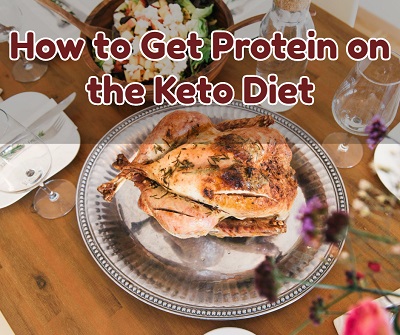 Traditional low-carb diets are a little different from ketogenic diets in that they promote high protein through meat, cheese, and other sources, while keto looks for moderate protein. This is not a diet where you have as much protein as you possibly can.
Traditional low-carb diets are a little different from ketogenic diets in that they promote high protein through meat, cheese, and other sources, while keto looks for moderate protein. This is not a diet where you have as much protein as you possibly can.
However, you may still be struggling to get enough protein, especially if you are on a vegetarian diet as well as keto. Take a look at these ways you can increase your protein.
Keep Your Protein Moderate
It is important that you first keep in mind your protein needs to be at a moderate level. When you calculate your macros, try not to go over 1 gram of protein per pound of lean body mass.
There are a lot of helpful calculators online that will give you all your macros, so that you know exactly how much protein o aim for each day, but also to keep it from getting too high for the ketogenic diet.
Go for Animal Protein First
If you are not getting enough protein after you have properly calculated your macros, one of the easiest ways while on a keto diet is to go for your animal protein. Most meat and seafood is at zero net carbs, which means you can have a good amount of it to increase protein, increase your fat, and not worry about increasing the carbs.
Try to have a good combination of meat, from high-fat meat like pork and beef, to the leaner protein sources like poultry and fish.
Don’t Forget About Nuts
Nuts are great because they allow you to add in more protein, with more variety. They are one of the best sources of low-carb foods when you are on a vegetarian or vegan ketogenic diet as well. While you may not rely on them as much as other sources of protein, your nuts can also increase your fat in a delicious and healthy way.
For example, almonds are usually the top type of nut because they are loaded with nutrients. One serving of almonds has 6 grams of protein just on its own. Some other good options are walnuts, cashews, and pistachios.
Add in Some Eggs and Cheese
You can also have some dairy products, including most cheeses and eggs to increase your protein. You just want to be careful about milk because it contains sugars that will be higher in carbs. For non-dairy milk options, use coconut milk or almond milk.






